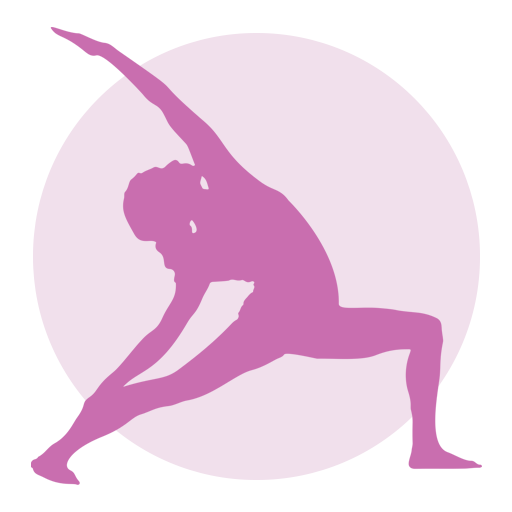The Impact Of Chronic Stress On Mental And Physical Health
Chronic stress does more than cause daily discomfort. The impact of chronic stress extends across mental and physical health, disrupting mood, sleep, immunity, and long-term resilience.
This YouTube video below by Hackensack Meridian Pascack Valley Medical Center explains how stress affects physical and mental health. It shows how long-term stress impacts the body, mood, and daily function. These insights add medical context to this discussion.
Mental Health: The Silent Battle
Depression and Anxiety
Chronic stress contributes to mental health disorders, disrupting neurotransmitters like serotonin and dopamine, essential for mood regulation.
Physical Health: Beyond the Obvious
Cardiovascular System
Prolonged stress increases the risk of hypertension, heart disease, and stroke.
Immune Function
Chronic stress weakens the immune system, making individuals more susceptible to infections.
| Terms | Definition |
|---|---|
| Cortisol Levels | Hormone released in response to stress. |
| Adaptation | Body’s ability to adjust to stressors. |
| Psychological Impact | Influence on mental well-being. |
| Allostatic Load | Cumulative wear and tear on the body due to stress. |
| Coping Mechanisms | Strategies individuals use to deal with stress. |
The Impact of Cortisol Levels on the Body
Chronic stress dysregulates cortisol release, impacting various physiological functions.
| Physiological Aspect | Impact of Chronic Stress |
|---|---|
| Metabolism | Impairment, affects memory and concentration. |
| Immune System | Suppression increases vulnerability to illnesses. |
| Sleep Patterns | Disruption, contributing to insomnia or poor sleep quality. |
| Cognitive Function | Impairment affects memory and concentration. |
Decoding the Narrative
| Term | Context in Chronic Stress Discussion |
|---|---|
| Burnout | Complete exhaustion due to chronic stress. |
| Resilience | Capacity to bounce back from stressors. |
| Mindfulness | Practice to alleviate stress through present awareness. |
| Emotional Exhaustion | Draining emotional state resulting from chronic stress. |
The Silent Impact on Daily Life
Burnout encapsulates the silent toll chronic stress takes on individuals, leading to complete physical and emotional exhaustion.
| Sign | Indication of Burnout |
|---|---|
| Constant Fatigue | Overwhelming tiredness despite adequate rest. |
| Cynicism | A detached, cynical outlook towards work and life. |
| Reduced Efficacy | Decreased effectiveness and accomplishment in tasks. |
Chronic Stress and Physical Health: A Symbiotic Relationship
Chronic stress creates a symbiotic relationship between mental and physical health, exacerbating each other in a relentless cycle.
| Stage | Impact on Mental Health | Impact on Physical Health |
|---|---|---|
| Stress Onset | Initial signs of anxiety and mood changes. | Activation of stress hormones impacting organ systems. |
| Prolonged Stress | Development of mental health disorders. | Increased risk of cardiovascular diseases and infections. |
| Physical Symptoms | Manifestation of physical symptoms due to stress. | Escalation of mental health symptoms, intensifying stress. |
Strategies for Coping: A Beacon in the Storm
Coping mechanisms serve as anchors amid the storm of chronic stress, providing tools to navigate turbulent waters.
Mindfulness and Stress Reduction
This YouTube video below by the University of Arizona Health Sciences explains how mindfulness supports stress reduction. It shows how mindful awareness improves emotional balance and mental clarity. These insights strengthen the connection between mindfulness and healthier stress management.
Incorporating meditation and mindful breathing into daily routines fosters resilience and a sense of calm and stress reduction.
| Technique | Steps |
|---|---|
| Mindful Breathing | Focus on your breath, inhaling and exhaling slowly. |
| Body Scan Meditation | Direct attention to different parts of the body, releasing tension. |
| Loving-Kindness Meditation | Cultivate feelings of compassion towards yourself and others. |
Social Support: Building Resilient Connections
Seeking support and sharing concerns with trusted individuals or joining support groups is crucial.
| Approach | Benefits |
|---|---|
| Open Communication | Share your feelings and concerns with trusted individuals. |
| Joining Support Groups | Engage with communities facing similar challenges. |
| Quality Social Time | Spend time with loved ones, fostering positive connections. |
Physical Activity: Stress-Busting Movement
Regular exercise, such as brisk walking, yoga, or aerobic exercises, contributes to physical well-being and is a powerful stress reliever.
| Activity | Benefits |
|---|---|
| Brisk Walking | Boosts endorphins, the body’s natural mood lifters. |
| Yoga Practices | Combines movement and breath for holistic well-being. |
| Aerobic Exercise | Enhances cardiovascular health and reduces stress. |
Professional Help: Therapeutic Guidance
Seeking professional help from therapists and counselors provides tailored strategies for managing chronic stress.
| Approach | Overview |
|---|---|
| Cognitive-Behavioral Therapy (CBT) | Identifies and addresses negative thought patterns. |
| Mindfulness-Based Stress Reduction (MBSR) | Integrates mindfulness into coping strategies. |
| Biofeedback Training | Teaches conscious control of physiological functions. |
Frequently Asked Questions on Chronic Stress
Q1: What distinguishes chronic stress from everyday stress?
A1: Chronic stress involves persistent, long-term pressure that exceeds an individual’s ability to cope. Everyday stressors are short-lived and typically manageable.
Q2: How does chronic stress impact sleep?
A2: Chronic stress disrupts sleep patterns, leading to difficulties falling asleep, staying asleep, or experiencing restful sleep.
Q3: Can chronic stress lead to physical pain?
A3: Yes, chronic stress often manifests as physical pain, particularly in areas prone to tension, such as the neck, shoulders, and back.
Q4: Is there a connection between chronic stress and digestive issues?
A4: Absolutely. Chronic stress can lead to digestive problems like indigestion, irritable bowel syndrome (IBS), and inflammation in the gastrointestinal tract.
Q5: Are there gender differences in how chronic stress affects health?
A5: Research suggests that chronic stress may impact men and women differently, influencing the prevalence of certain health issues.

